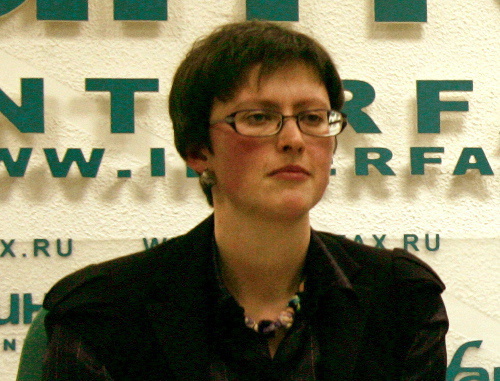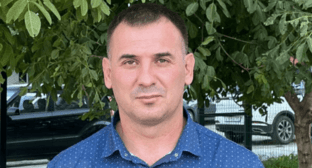
25 January 2012, 23:30
Situation in Northern Caucasus is key point in Russia's chapter of HRW's global human rights report
The chapter on Russia of the report of the Human Rights Watch (HRW) on human rights situation in the world highlights - along with concerns about the last December's parliamentary elections - a worry about the continuing human rights violations in Northern Caucasus. According to Tatiana Lokshina, the deputy head of the Moscow HRW office, the report point to the fact that little has changed here since early 1990s.
Let us remind you that the presentation of the annual report of the HRW on the situation with human rights in the world took place on January 23 in Moscow, which happened in Russia for the first time in many years. A separate chapter is devoted to Russia. Purposefully for Russian mass media, not only the chapters on Russia and CIS members, but also those covering the Middle East and North Africa were translated into Russian.
Sevortyan: Russia has positive changes in human rights situation
According to Anna Sevortyan, Director of the Russian Representative Office of the HRW, Russia also sees positive change.
"One of them is decriminalization of defamation, undertaken last year at the initiative of President Dmitry Medvedev: libel was transferred from the category of criminal offences into administrative ones," she explained.
Besides, among other positive examples she mentioned the termination of the criminal case against Oleg Orlov, Chairman of the Board of the Human Rights Centre (HRC) "Memorial", who had been accused of slandering the leader of Chechnya Ramzan Kadyrov, and the sentence to Nikita Tikhonov and Eugenia Khasis, accused of murdering the lawyer Stanislav Markelov and journalist of the "Novaya Gazeta" Anastasia Baburova.
However, according to Tatiana Lokshina, the deputy head of the Moscow office of the HRW, the country still suffers from voluntarism of power structures. The greatest concern is about the situation in Northern Caucasus, where, according to human rights defenders, little has changed since early 1990s.
"Disappearances, abductions and torture continue. Anyone, at the slightest suspicion of involvement in illegal armed formations (IAFs) or possible complicity or even sympathy for them, will be tortured. Torture is applied not 'in a number of cases', but as a routine practice, that is, any detainee may be tortured. Those who write about it - rights defenders and journalists - are fewer and fewer: they are assassinated. With regard to Chechnya, the civil society there is generally paralyzed by fear after the murders of Natasha Estemirova and other activists in 2009. All these killings remain unpunished," said Tatiana Lokshina.
According to her story, the problems that human rights advocates are watching in Northern Caucasus are not limited by the borders of the region. "They exist all over Russia," she said.
In support of this idea, she told the audience of the press conference about detention last weekend in Nizhny Novgorod of Anton Ryzhov, a member of the united mobile advocacy group that works in Chechnya. The lawyer was detained after he returned home. They confiscated his laptop and memory sticks, explaining that his digital carriers could contain information about terrorist activities.
It was reported at the press conference said that the European Court of Human Rights had passed over 200 decisions on responsibility of the Russian government for gross human rights violations in Northern Caucasus. The Russian Federation is regularly paying the awarded financial compensations to the victims, but in fact fails to fulfil the essence of court rulings, the report notes.
Lokshina: often North-Caucasian regional leaders cannot change the situation
In her conversation with the "Caucasian Knot" correspondent Tatiana Lokshina said that, when visiting the republics of Northern Caucasus, she faced situations when the detainees accused of terrorist crimes are severely tortured.
When asked about contacts with local leaders of Northern Caucasus, Ms Lokshina said that the recommendations that human rights defenders offer to regional leaders are accepted, but "to what extent they are implemented - it's another question."
"This, of course, depends on how regional leaders can ensure implementation of these recommendations, because when it comes to activities of special services often regional leaders cannot, even if they want, change the situation. It should be also taken into account," said the source of the "Caucasian Knot".
In her opinion, the radicalization of the region and decrease of population's trust in local authorities are the results of illegal actions of law enforcement bodies.
Author: Tatiana Gantimurova Source: CK correspondent




